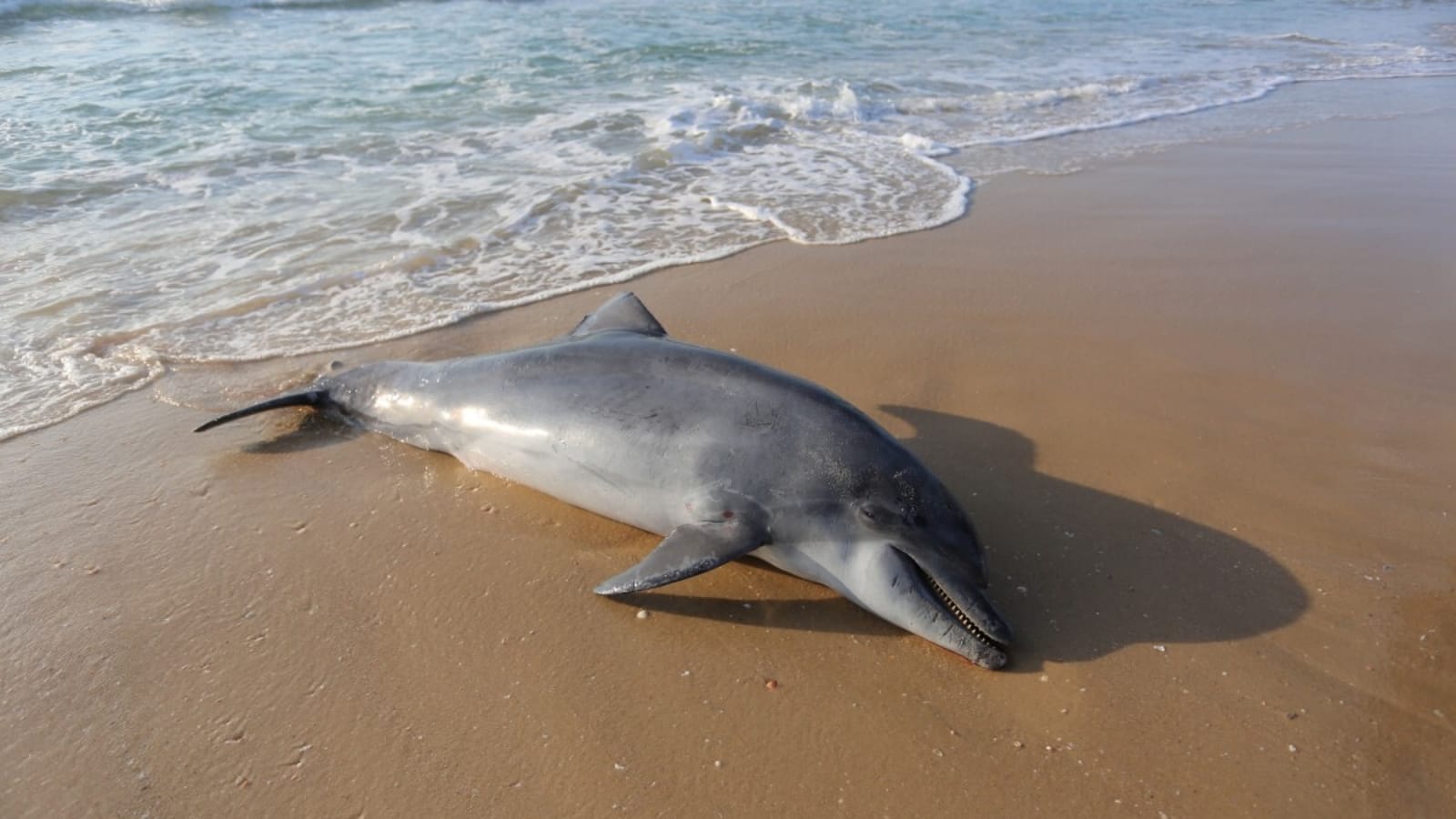
Scores of sea lions, dolphins, and birds are washing ashore on Southern California beaches, as a result of a toxic algae bloom currently permeating throughout the ocean. This is nothing new – it’s actually the fourth year in a row that this phenomenon has hit SoCal waters. But this year is different.
“So far in 2025 what we’re seeing in Los Angeles County is worse than what we saw in 2023, which at that time was the worst ever recorded," John Warner, chief executive officer of the Marine Mammal Care Center, located in San Pedro, told The Weather Channel.
Over 140 sea lions have already been rescued off Southern California beaches since February 20th; sick and dying dolphins have washed up; and it doesn’t appear to be slowing down anytime soon.
Specifically, with regards to the sea lions, the toxic algae blooms and the neurotoxin known as domoic acid that they produce, can cause erratic, even violent, behavior.
According to NOAA: “Domoic acid not only contaminates shellfish, but can poison marine mammals such as California sea lions that consume contaminated fish. The toxin accumulates in their bodies—causing seizures, other unpredictable behavior, brain damage, and death.”
Recently, a surfer in Ventura County was attacked by a sea lion, which he called “demonic.” The sea lion came at him multiple times, relentlessly, almost rabid, and ultimately, sent him to the hospital for a bite to the butt cheek. Rj LaMendola, the victim in that attack, explained the incident:
“It started as an ordinary session, just me and my board, about 150 yards from the shore, riding the waves in solitude. The ocean was calm, the rhythm of the swells familiar—until, out of nowhere, a sea lion erupted from the water, hurtling toward me at full speed. Its mouth gaped wide, teeth flashing, and its eyes locked onto me with an unsettling ferocity. My heart lurched as I instinctively yanked my board to the side, paddling frantically to evade it as it barreled forward, intent on crashing into me.”
LaMendola added: “This isn’t normal sea lion behavior; It’s something darker, something dangerous.”
If you encounter a sick sea lion, or dolphin, in the water or on the sand, officials advise to keep your distance – then call the Marine Mammal Care Center at 1-800-39-WHALE (1-800-399-4253).
More must-reads:
- Royals need to make this drastic change to save their season
- Mets lose key starting pitcher to brutal leg injury
- The 'No. 2 NBA Draft picks' quiz
Breaking News
Trending News
Customize Your Newsletter
 +
+
Get the latest news and rumors, customized to your favorite sports and teams. Emailed daily. Always free!








